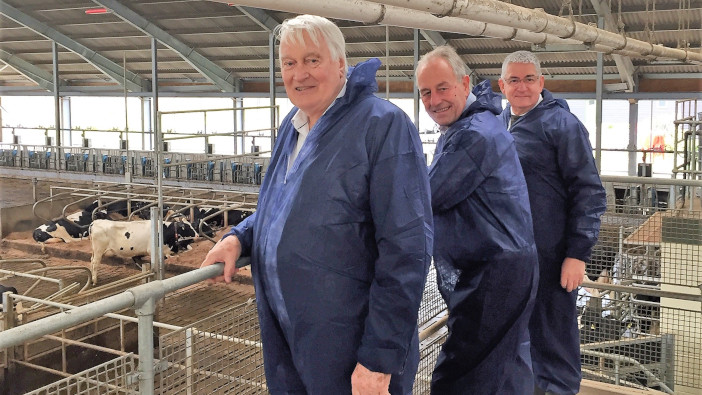Research from the University of Nottingham has suggested that dairy farmers switching to a palm-free, chemical-free fat supplement could save up to 55t of CO2.
Revisiting trial figures from work at the Centre for Dairy Science Innovation (CDSI) in 2021, Emeritus Professor Phil Garnsworthy has calculated that the 64% lower carbon footprint of the palm-free supplement Envirolac, compared to a control palm-oil based fat, equates to a saving of 15 tonnes CO₂ equivalent during early lactation, and up to 55 tonnes for the whole lactation.
The figures are based on a 200-head dairy herd taking Envirolac at 0.5kg/day. The results also showed an increase in milk yield and butterfat production compared to the control.
“We were delighted with the initial University trial results, with Envirolac providing a 64% reduction on the feed carbon footprint, when compared to the palm-based control, reducing the feed carbon footprint per kg of milk by 11%,” explains Robert Jones, UFAC-UK managing director.
“However, we wanted to put this data into relatable language for the dairy farmer, and this 55 tonnes CO₂ equivalent reduction per year certainly does that. We are all reading about the various quick fixes to help reduce the farm carbon footprint, but these figures represent a significant saving, which is easily achieved, helping towards meeting Net Zero targets.”
The trials are now been replicated in commercial studies, with initial results showing a feed carbon footprint reduction of more than 10%, as well as an average milk yield increase of 1.4kg and 0.10kg in total milk solids.
Professor Garnsworthy comments, “Targeted and precision feeding of Envirolac offers producers the potential of significant financial gains through improved quantity and quality of milk produced, while increased production efficiencies should help increase profits.”


